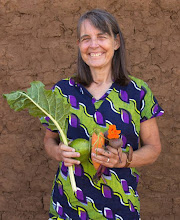GHI Thanksgiving 2014:
Gratitude, Goodness, Generosity
. . but no goats. . .
Last Friday the Gardens for Health team hosted the
5th annual Thanksgiving lunch extravaganza. Despite the threat of an afternoon
deluge, the skies never opened and approximately 500 people were able to enjoy
an amazing feast, sketches from field educators and dance performances from the
mamas who are currently enrolled in GHI’s program.
One task of mine for this stint at GHI was planning
and coordinating this year’s Thanksgiving.
From a logistics perspective, the combination of implementing ‘lessons
learned’ from previous years and incredible team-work resulted in an almost
stress-free production. Due to the huge expansion this past year from 8 to 18
health center partnerships, we realized early on in the planning stages that
including all mamas in the program was not feasible. A lottery system was
devised for each health center that made it fair and equitable. The mamas
chosen were all given a wooden clothespin with their name and health center
written on it, as their ‘entry ticket’. This would ensure they were given
priority in the meal queue, as well as a friendly way to know their names. This
system also kept the numbers of guests down from last year’s approximation of
two thousand!
Besides featuring dendo (turkey) on the menu, one
major change from years past was the decision to switch from inhene (goat) to inka
(cow) as the primary meat dish. Despite some logistical challenges with the
cow’s final hour, afterwards at the staff debrief meeting there was a landslide
vote in favor of inka over inhene for future events.
When the rented matatus (small buses) arrived in convoy
with the Musanze district mamas (for many their first time to Kigali
After a steadfast team tackled dishes, a crew stacked
chairs and others helped with general cleanup, another dance party ensued,
wrapping up a very full, wonderful and emotional day.
Helen
Clothes pins entry tickets
Hanging flags
Ready to tackle a massive
shopping expedition
Clean dishes prepared
.Focused potato scrubbers
Part of the potato crew
Beans!
Ivy League butcher
Steadfast kitchen mamas
Mamas arriving
Happy mama
The lunch queue
GHI Team (partial)
Adorable observers
The first dancers offering their
harvest baskets to Julie
Jessie & Julie
GHI's amazing leaders
Poetree















.jpg)





































